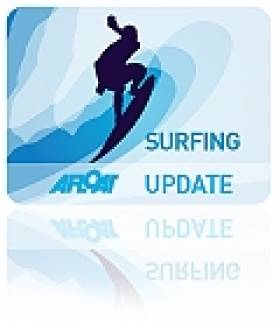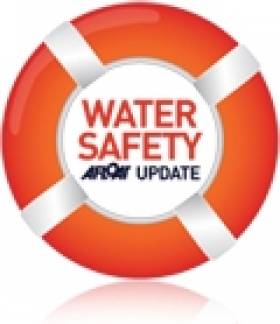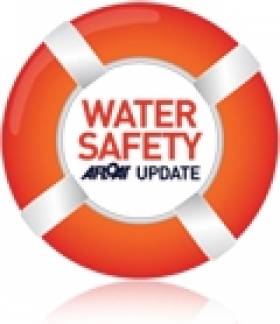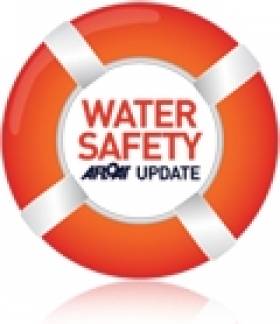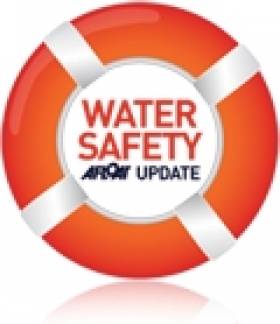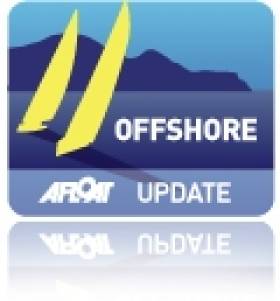Displaying items by tag: lifesaving
Tramore Surf Clubs Plans New Clubhouse and Training Centre
#SURFING - Tramore Surf Lifesaving Club is seeking planning permission for the development of a new clubhouse and national training centre on Tramore's promenade.
The state-of-the-art development would involve the completion of a three-storey ocean-themed building along the seafront, with club changing facilities and a shower area; rescue boat housing; an emergency first aid room; conference room; and a lifeguard area with an observation deck on the third floor.
The building would also incorporate the latest in renewable energy technologies to minimise the club's carbon footprint and tailoring our energy usage to our needs.
It is projected that the new clubhouse would also house Waterford County Council's beach lifeguards during the summer months, which will also allow for co-operation in relation to water safety and lifesaving skills.
Waterford Today has more on the surf club's proposals HERE.
German Highest Honour for Irish Lifesaver
An International Lifesaving Conference for European Lifesaving Federations from 22 countries throughout Europe was held in Dublin last weekend. Many issues concerning water safety and rescue were discussed, with particular emphasis on standardisation within Europe with regard to beach safety, swimming pool safety and rescue techniques. At the closing ceremony the President of International Life Saving (Europe), Dr. Klaus Wilkens thanked Irish Water Safety for hosting the event, which was last held in Ireland in 2004. He spoke warmly concerning the facilities available in Ireland for the holding of such conferences and the renowned welcome of the Irish in quoting "a hundred thousand welcomes" for which the Irish are world renowned.
Dr. Wilkens, who is also the President of the DLRG (German Lifesaving Organisation) which ranks as one of the largest lifesaving organisations in the world, took the opportunity to present that Organisation's highest honour to Mr. Frank Nolan, Chairman of Irish Water Safety, in recognition of his dedication and loyalty to lifesaving at home and worldwide. In presenting the Gold medal, Dr. Wilkens explained that Irish Water Safety and the German Lifesaving Federation had worked closely over many years since 1971 to promote safety for all to enjoy the great benefits that the aquatic environment has to offer. As a mark of this fact the Presidium of the DLRG wished to honour Frank Nolan.
Frank Nolan who is a retired member of the Garda Siochana and having served in the Waterford Kilkenny Division has given a lifetime commitment to the promotion of water safety and rescue in Ireland and abroad. He is an expert in water safety matters, sea rescue and cliff rescue and is the present Chairman of Irish Water Safety, which comes under the auspices of the Department of the Environment. He serves on many national and international committees with regard to water safety and his opinion is valued.
Firm Offers Security for Wexford Lifebuoys
A security firm based in Wexford town has offered electronic protection and 24-hour monitoring to Wexford County Council in a bid to secure funding for lifebuoys on Wexford Bridge.
According to the Wexford People, the move comes after a spate of accidents involving people falling from the bridge, which is one of the longest in Ireland. The original lifebuoys were removed several years ago due to vandalism.
SAR Ireland has more on the story HERE.
Family Considers Legal Action Over Kayak Trip Victim
The Irish Independent reports that the family of a man who drowned with a friend on a kayaking trip are considering legal action over the lack of warning signs at the weir where they lost their lives.
Accident investigators have classed the weir at Portlaw on the Clodagh in north Waterford, where Philip Kelly (31) and Connie Smith (31) drowned, as "dangerous and unnavigable" for kayaks and canoes.
Investigators from the Marine Casualty Investigations Board also found that vital lifesaving equipment at the weir, which had been vandalised, was not replaced.
"We feel if signs had been in place that day, warning them how dangerous it was, they would be with us today," Kelly's brother Paddy told the Irish Independent. "We are discussing taking legal action."
The Irish Independent has more on the story HERE.
Irish Water Safety Launches TV Campaign
Irish Water Safety (IWS) has launched a new TV awareness campaign to highlight best practice whether in, on or around water in an effort to cut the number of tragic drownings on our coasts and waterways.
"Ireland is blessed with some of the most beautiful locations in the world for water based activities and this campaign will help people enjoy these waterways safely," said Minister of State Fergus O'Dowd, speaking ahead of the launch.
The number of people taking to water based activities has exploded in the last decade, says IWS, yet many have had no formal swimming or lifesaving instruction, and many do not know what to do if they or a loved one gets into difficulty in the water.
The campaign highlights the importance of aquiring these skills and others, such as how to correctly wear a lifejacket.
"The most common dangers can be avoided by logging onto Irish Water Safety's website so that when the improving weather prompts a day trip to the seaside, rivers and lakes that you are well informed and stay safe," added Minister O'Dowd.
Sailing Firm Fined Over Safety Breaches
The director of a sailing firm who sent students across the Atlantic on an unsafe yacht with an unqualified captain has been fined and ordered to pay costs by a British court.
According to the Isle of Wight County Press, a Southampton Crown Court judge told George Haworth of In2Sail Ltd that if he does not pay up he would be jailed for six months.
The court heard that Haworth sold voyages to students for more than £8,000 per head, but did not have boats equipped with the minimum lifesaving gear required.
It also heard that students had been sent on a trip to St Lucia with a skipper not fully qualified for a yacht and with only basic equipment to operate within 60 miles of a safe haven.
Defending barrister Charles Crinion said his client’s "good reputation had been irrevocably damaged" and has cost him his business, with a personal loss of £45,000.
Haworth admitted two counts of failing to take reasonable steps to ensure the yacht was operated safely.
The Isle of Wight County Press has more on the story HERE.


























